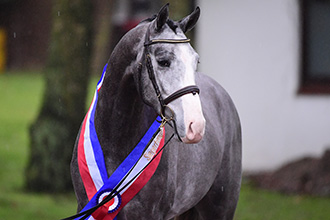If dealing with Covid-19 for the past year hasn't been enough, the horse world now faces another fear: A dangerous neurological variant of the EHV-1 herpes virus has swept through a tournament facility in Valencia, Spain, where four horses have already died.
EHV1 is not new and the majority of horse owners have established a vaccination regime. It commonly strikes at this time of year, then subsides when the warmer weather arrives.
Although the vaccine is not 100% effective, horses receive good protection and may only become mildly symptomatic; loss of appetite, fever. However, the new variant of herpes virus has been deemed extremely aggressive, causing breathing difficulties and severe fatigue, attacking the nervous system so movement becomes difficult. The existing EHV-1 vaccine apparently does not offer consistent protection for new variants.
Riders reporting from Spain say zones have now been created, but the initial reaction was chaotic. Additional veterinarians have been shipped in to assist with the 160 horses currently quarantined on site, where a total of 84 horses are showing clinical signs. Eleven others are being treated in clinics elsewhere having already left the facility. New cases have been reported in France, Germany and Belgium.
As the virus has now spread throughout Europe, carried by horses returning home, shows in Belgium, France and Germany have been cancelled until at least the end of March.
The status is not yet known with regard to the horses stabled in Doha for the opening leg of the Global Champions Tour.
According to a press release issued by the FEI: "We are currently experiencing what is probably the most serious EHV-1 outbreak in Europe for decades and, while the Spanish veterinary authorities are in charge onside in Valencia, the FEI Veterinary Department is driving coordination of both the onside and wider measures in direct cooperation with the Spanish National Federation. [...] The treatment of horses on venue has been vastly improved with additional veterinary support and medical supplies, with a total of 21 veterinarians now on site. [...] The Veterinary Department, supported by leading epidemiologists, is undertaking a constant risk assessment in order to take and advise on correct preventive measures. While the priority remains the current outbreak and minimizing the risk of further transmission, the FEI will be using data gathered from this outbreak to evaluate the effectiveness of the EHV-1 vaccine, seeing which horses from the total group of 751 that participated in Valencia have been vaccinated, which had symptoms or were asymptomatic, and which horses have died. The FEI will continue to work closely with the affected National Federations and update the wider community as soon as new information becomes available. [...]"




